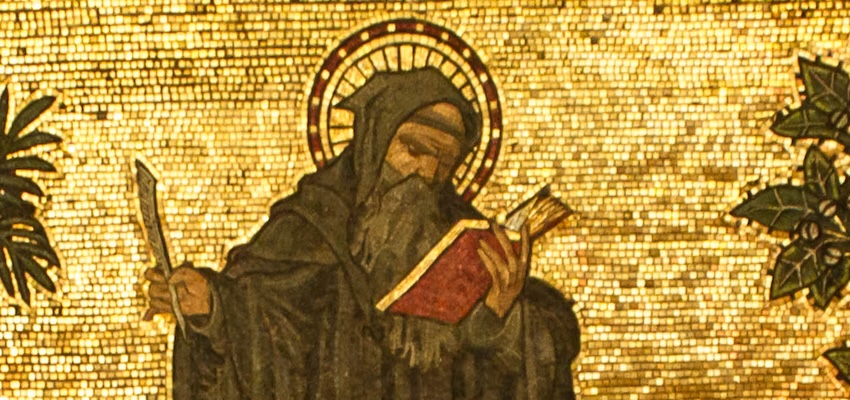
The English have always thought highly of themselves. St. Bede the Venerable heralded the evangelization of the Angles as the beginning of a very special relationship: “the goodness of God did not forsake his people, whom he foreknew.” This perception of heaven’s favor only intensified as the country became unified under a king. Giddy genealogies found in medieval manuscript collections in Kent document the belief that Alfred the Great was a descendant of Noah.
But it was all qualified by a faith that saw its center of gravity in Rome. Any grandiosity about England’s destiny also had to be mindful of her place within Christendom at large. And yet, from a relatively harmless, perhaps even conventional, tangle of jingoistic images—England as a verdant Canaan, its monarch as a type of Solomon, a people commissioned to uproot idolatry, and so forth—came a hypertrophic development of English exceptionalism. It would bring imperial glory and fame—but also loss of innocence.
It all changed on this day 540 years ago. On August 22, 1485, Henry Tudor defeated the king’s forces at Bosworth Field. While Richard III was hardly an immovable object (he had lost even some Yorkist support by his apparent connection to the murder of his brother’s princely heirs), Henry’s was not an obvious victory. It rested on a pitiful claim; he was a great-great-grandson of Edward III via a mistress. He had spent much of a life hidden away, in exile, awaiting the dice roll from his Lancastrian family that would usher him and his line back into power.
It would therefore be a dynasty with an internalized sense of instability. A practically illegitimate king had forcibly won the realm within a fortnight of landing at Mill Bay by promising a few nobles that he would wed the enemy princess and end the civil war. Being murdered or deposed was a live possibility. The Tudor pathology was destined—ironically, as a result of its origin story—to reflect a profound anxiety over its own safety and legitimacy. It would be prone to control freakery and Wizard of Oz histrionics.
From Henry VII to Elizabeth I, the Tudor monarchs saw the hand of providence at work in their lives. They all seemed to genuinely believe it was the only explanation for their miraculous survival. It emboldened them, inclining them to stagey tactics that constructed magnificence from “smoke and mirrors,” as Lucy Wooding describes it in Tudor England—anything to divert eyes away from the essential precariousness of their situation. It is no coincidence that on this family’s watch came the Supremacy—the monarch’s claim of absolute spiritual authority. It was the ultimate bit of dramatic self-presentation, designed to end all fear of usurpation.
It backfired. The English split from Rome only intensified the fragility of Tudor rule, and necessitated centuries of propaganda peddling English superiority to hold it in place. England’s sense of exceptionality was once informed by her glorious initiation into the faith. After the Tudors, it would be defined by her brute autonomy: “this realme of England is an Empire” crowed the 1533 act that began the Henrican reforms. But the consciousness this created could not be contained, not even by the ruler. A king would be murdered in the next century in the name of this new religious, political destiny.
It was part of everyday schooling in my country to be taught that the English mindset is best exemplified by self-assertion. We invented constitutional government in the seed-form of the Magna Carta. We freed ourselves from papal tyranny. We stood alone, 1940 to 1941. Even today, postcolonial narratives have retained some logic of exceptionality, albeit inverted: Our empire was uniquely, incontestably evil.
A few weeks ago, Danny Kruger, the commendable member of Parliament for Wiltshire, gave an impassioned plea for the country to return to its former Christian identity: “We are going to learn if our house is built on rock or on sand, but we have been here before. The reformers of the eleventh and the sixteenth centuries, the Puritans in the seventeenth century, the Evangelicals in the nineteenth century all brought this country back from the edge—from idolatry, error or just plain indifference . . . they each in their generation restored this country to itself.”
He was right to criticize the grotesque approval of the House of Commons to increase access to abortion and assisted dying; right too, to deny a “secular” public space its autonomy. But his genealogy, praising defiant Protestantism and its forerunners, relies on a Potemkin history, dumped on us by the winners of Bosworth Field, and sealed in Elizabethans by Foxe and Shakespeare. This myth of the English as clear-sighted reformers has always been too easily weaponized by all-comers—best seen in the populist protectionism we are probably heading toward at the next election. Kruger may well lose his head to a new and unwelcome kind of Reform.
The Cambrian Implosion
A historical moment ago, it was too obvious for words, but: Life is a blessing. So to…
Undermining the Church’s Public Witness
Bishop Thomas J. Paprocki recently wrote in these pages that the Archdiocese of Chicago’s plan to grant…
Faith Returns to the Public Square
Pastors, pundits, and politicians gathered in Phoenix last Sunday to remember Charlie Kirk. Seventy thousand people filled…
